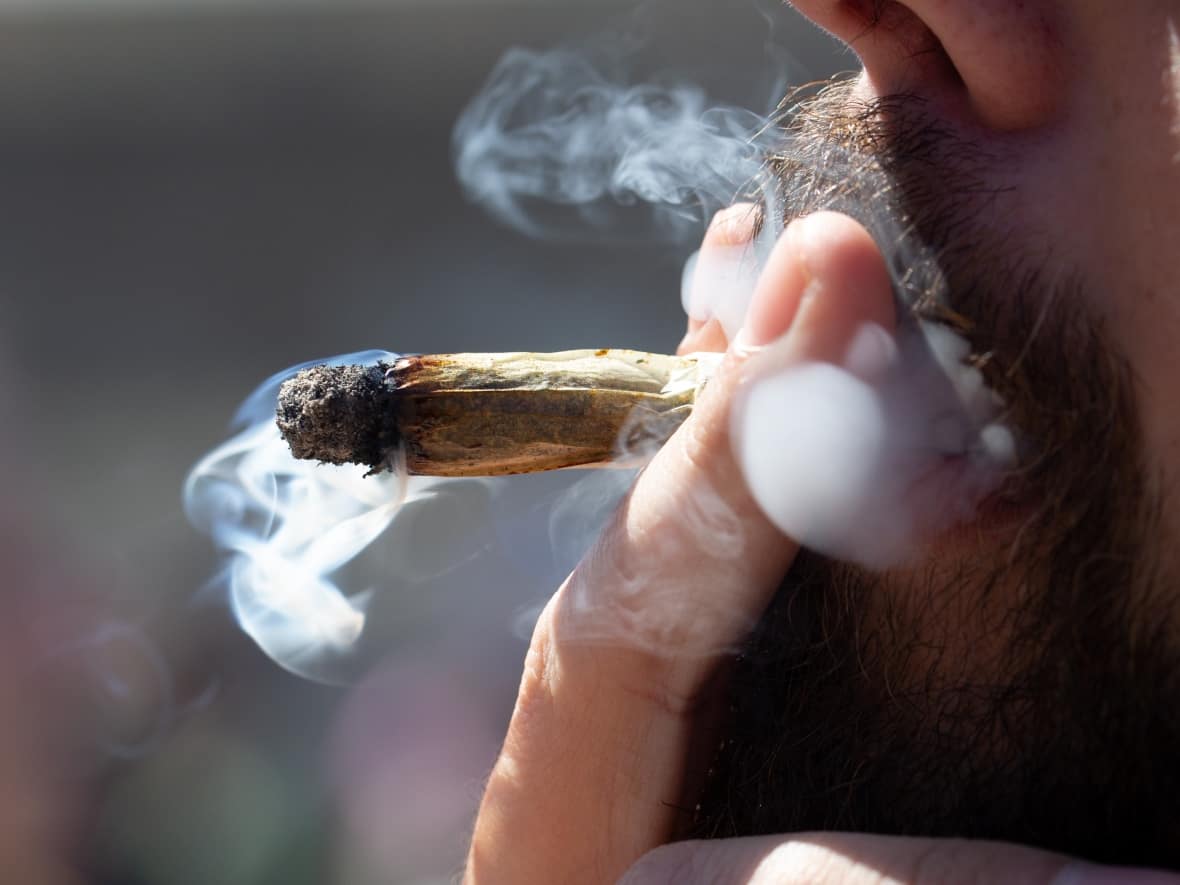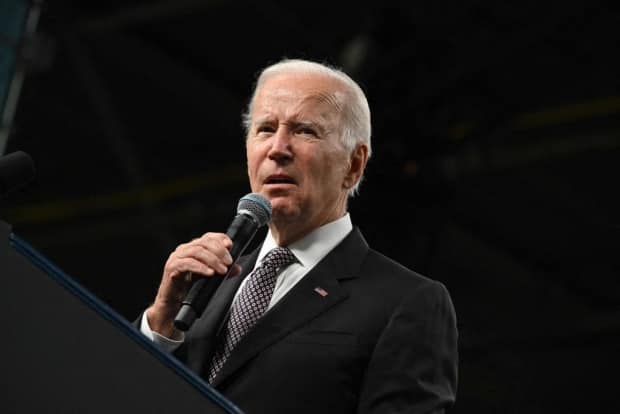Biden's blanket pot pardon plan is better than Canada's approach, experts say

It was midterm election politics — and the need to energize voters aged 18 to 34 — that led U.S. President Joe Biden to announce pardons for all those convicted on federal charges of marijuana possession at the end of last week.
Unlike Canada — which legalized recreational cannabis use federally in 2018 — the U.S. still bans the plant for all purposes at the federal level.
And Biden's plans for cannabis aren't very ambitious for a president who came to office talking about decriminalization. Recently, he switched to pursuing the removal of cannabis from the Schedule One category of the most dangerous illegal substances, which it shares with heroin. (Biden has pointed out the perversity of obsolete laws that treat cannabis as more dangerous than fentanyl and meth.)
Critics were quick to point out that Biden's pardon will affect only those convicted federally and does nothing for those convicted under state laws — the vast majority of Americans convicted of cannabis possession. Biden can only encourage governors to follow his lead at state level, and he has done that.

But there's one aspect of his announcement that many Canadian experts say was more progressive, effective and beneficial than the approach taken by the government of Prime Minister Justin Trudeau — Biden's decision to proactively pardon those people he has the power to help.
"I think a more automatic approach that doesn't require any kind of lengthy application or red tape is definitely preferable to the system we have here," said Samantha McAleese, an adjunct research professor at Carleton University whose PhD thesis looked at the barriers faced by people with criminal records in Canada.
"The U.S. approach wins in that regard."
Polls suggest the approach is also a winner with the American public. An Ipsos-USA Today poll published this week showed Americans supported automatic federal pardons by a margin of more than two to one.
Pardons granted just a fraction of those expected
As talking points prepared for the Public Safety minister in 2020 show, the Trudeau government trumpeted its cannabis reforms with claims that it had "delivered" on its promise "to work toward removing the stigma of a criminal record for people who have shown themselves to be law-abiding citizens. Removing this barrier allows these individuals to meaningfully participate in their communities, secure good and stable jobs and become fully contributing members of society."
But in just over three years since the streamlined record suspension application process for simple possession of cannabis convictions came into force, the Parole Board of Canada (PBC) has received only 972 applications for cannabis record suspensions — a very small fraction of the 10,000 applications the government was expecting.
Of those 972 applications, only 628 have received cannabis record suspensions. Another 335 applications were returned due to ineligibility or incompleteness, while six have been received but have not yet been accepted for processing.
"It's been very unsuccessful in allowing people to suspend their records," said Abby Deshman, who directs the criminal justice program at the Canadian Civil Liberties Association. "And I think the U.S. has grappled with the issue of racial disparities in cannabis possession in a way that Canada just hasn't."
While the Canadian legalization debate revolved around health, said Deshman, the U.S. pardon process took into account the disproportionate burden imposed by simple possession convictions on one part of the population: African-Americans.
"One of the reasons why volumes may be lower than anticipated," said Marielle Gervais of the Parole Board of Canada, "is the fact that individuals with other criminal convictions on their record are ineligible for the expedited cannabis record suspension process.
"In addition, individuals may have already applied for a record suspension prior to the coming into force of C-93, or have no specific need to apply at this time."
The fact remains, though, that the number of applications in Canada is only a tenth of what the government itself forecast. McAleese said that shortfall is more easily explained by red tape.
"Most of that is because of the application-based process," she told CBC News. "So even though the government streamlined the process a bit and got rid of the application fee, there are still costs associated with putting the application together, and it still can be quite a runaround for folks to get all the information together that they need to make that application."
Expungement off the table
McAleese said Canada's high number of rejected applications partly reflects the number of applicants who are ineligible due to other convictions beyond simple possession of cannabis — but it's also typical of processes that require forms and documentation.
"It might just be one or two things missing from an application that check boxes the parole board is hoping for people to check off," she said.
McAleese said the government would have had more success in reintegrating people if it had proactively expunged all records for simple possession — which would have saved people the trouble of dealing with a bureaucratic procedure they may not understand.
"I think that this did meet the threshold for an expungement process, so that people don't merely have those records sealed or set aside, but rather have them permanently deleted," she said.
"During the debate on Bill 93, the standard response was that an automatic approach would just be too complicated, that it would be too hard to parse out various records.
"But unfortunately, when we're talking about people suffering very real, ongoing consequences as a result of a record for something that's no longer illegal, those who were advocating would have liked to see some more energy put into making it possible."
Gervais of the Parole Board said expungement isn't the right tool to deal with cannabis possession records.
"Record suspensions are the appropriate recourse for these convictions, as expungement is intended for circumstances where the criminalization of an activity was historically unjust, such as where a law violated the Canadian Charter of Rights and Freedoms," she said. "This is not the case for convictions for simple possession of cannabis."
An enormous barrier
But even in cases where the government was willing to expunge records, rather than just issue pardons, the onus has been placed on individual applicants.
That was the case with the Expungement of Historically Unjust Convictions Act, passed the same year as the cannabis pardon procedure. The law was meant to allow people to erase convictions for homosexual acts that are no longer illegal.
Although the government had records of about 9,000 such convictions, it saw only a handful of applications for expungement.
WATCH: Government review checks up on cannabis legalization
Deshman said the government's anti-expungement argument regarding cannabis fails to take into account the fact that criminal possession charges — while they existed — were disproportionately applied to racialized minorities.
The low uptake in the Canadian pardon process, she told CBC News, has consequences both for society and individuals.
She said the government should expunge, rather than merely pardon, and should do so proactively in a blanket manner that erases all simple possession convictions on the books.
"There are more and more employers, community-based organizations, volunteer managers, landlords that are asking for police record checks," she said.
"There are countless stories we've heard in our work of people who can't get jobs, who can't volunteer in their kids' schools, who can't cross the border, who've lost their trucker's license because they can't get a NEXUS pass. It really is incredibly disruptive and an enormous barrier to full participation in society."


